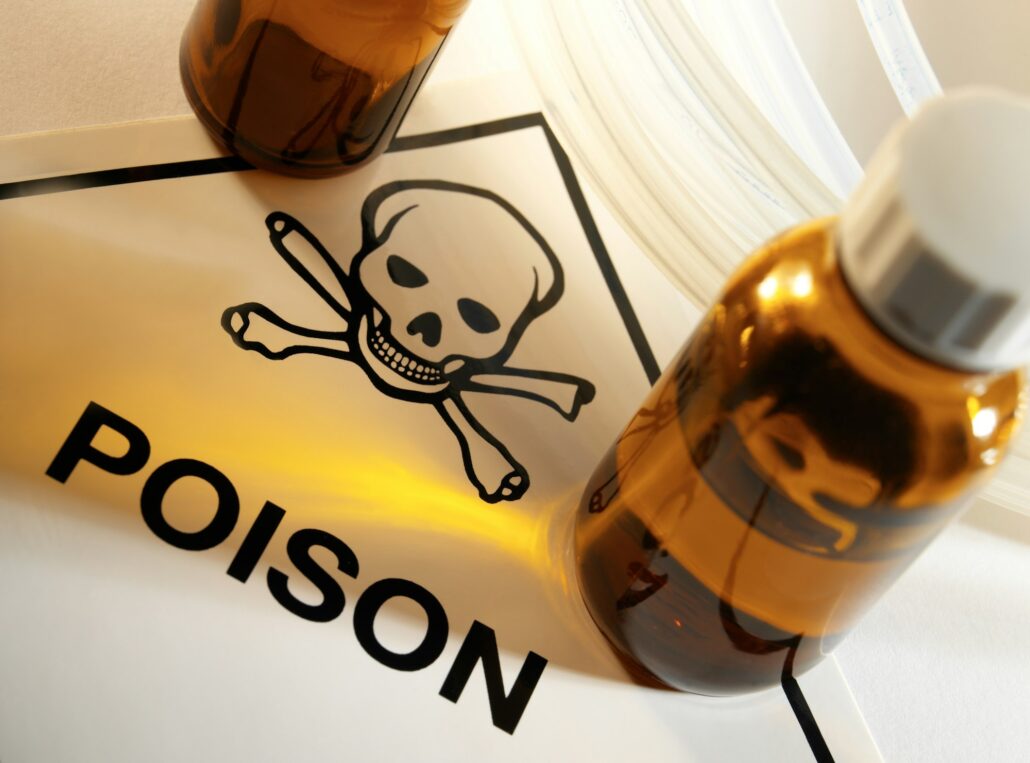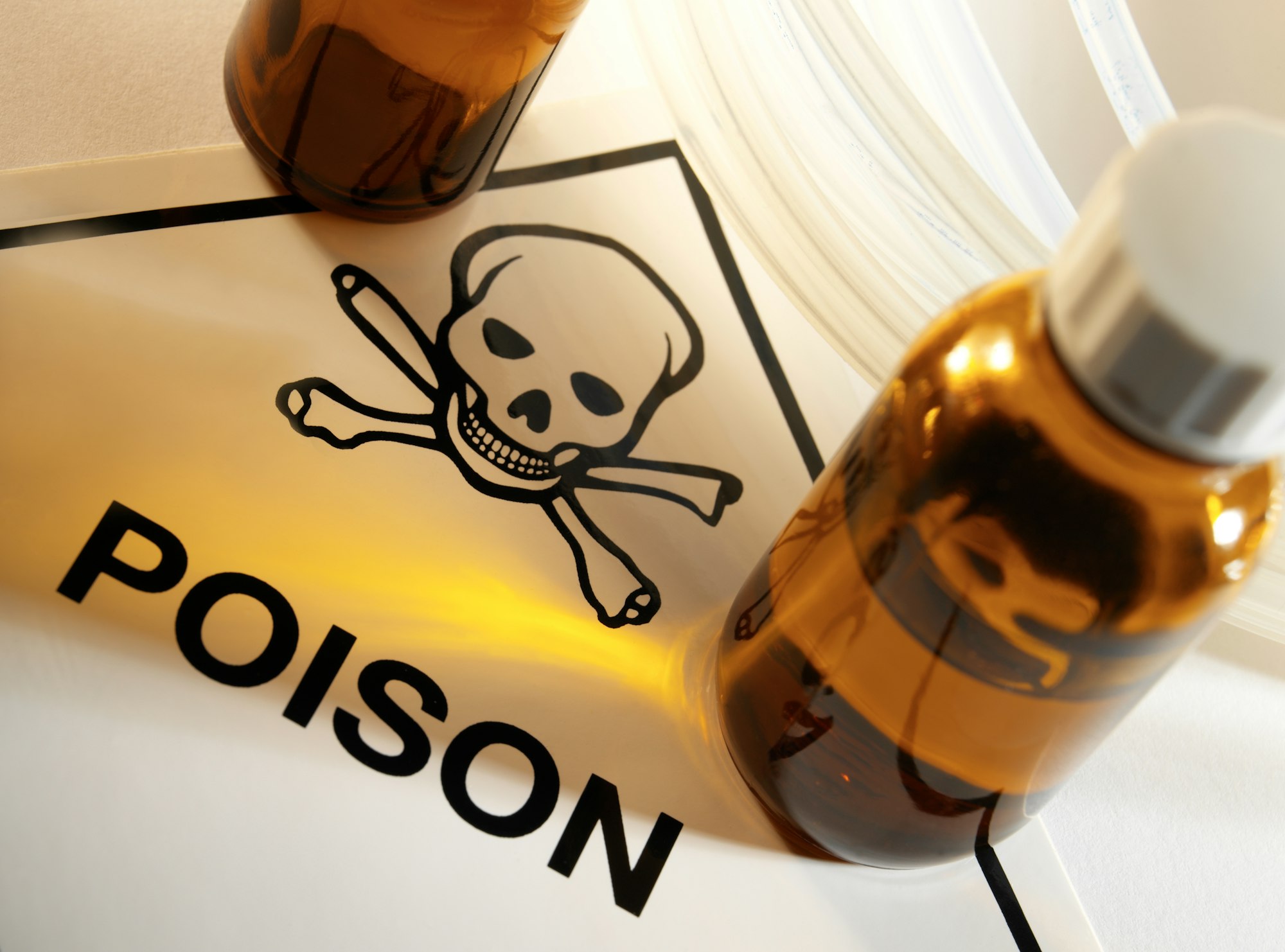Every year in the United States, two million poison exposures are reported, and astonishingly, about 90 percent of them happen right at home.
It’s startling how crucial it is to be aware of poisoning hazards in our homes. Whether you’re a parent, homeowner, or safety-conscious, knowing how to prevent poisonings can save a life.
In this blog post, we’ll explore common household poisons, share safety tips, and discuss how to recognize poisoning symptoms. Let’s keep your home safe.

Common Household Poisons
Cleaning Products
Cleaning products are essential in every home, but many have harmful chemicals. Bleach, ammonia, and some detergents can be toxic if ingested or inhaled. Mixing certain cleaners can also create dangerous fumes. Always read labels and follow instructions to stay safe.
Medications
Both prescription and over-the-counter medications can be risky if not stored properly. Pain relievers, antidepressants, and cold medicines are especially dangerous for children who might think they are candy. Always keep medications in their original containers, so they can be easily identified, and out of reach of kids.
Personal Care Products
Items like mouthwash, nail polish remover, and some cosmetics can be harmful if swallowed. Many contain alcohol, acetone, and other toxic substances. Store them securely, especially if you have young children.
Safety Tips
Store Chemicals and Medicines Out of Reach
One of the easiest ways to prevent poisoning is to store household chemicals and medicines out of reach. Use high shelves, locked cabinets, and child-resistant containers. Always put products back in their storage areas right after use. Don’t let them linger on a counter.
Use Child-Resistant Packaging and Locks
Child-resistant packaging is designed to be tough for kids to open. Use it whenever you can. Also, install locks on cabinets that contain dangerous substances. This extra step adds a layer of safety.
Proper Disposal of Unused or Expired Medications and Chemicals
Expired medications and chemicals lose their effectiveness and can become dangerous. Check local guidelines for safe disposal. Many communities have take-back programs or hazardous waste events to help you dispose of these items responsibly.
Recognizing Poisoning Symptoms
Symptoms in Children
Children may not always be able to say what’s wrong, so it’s important to recognize the signs of poisoning. Symptoms can include:
- Sudden stomach cramps
- Vomiting
- Drowsiness
- Difficulty breathing
If you notice any of these, act quickly.
Symptoms in Adults
Adults may experience dizziness, confusion, or a rapid heartbeat. In severe cases, there could be trouble breathing or unconsciousness. Call emergency services immediately to prevent further complications.
Steps to Take if Poisoning is Suspected
If you think someone has been poisoned, act fast. Call your local poison control center right away. They will give you specific instructions for the substance involved. If the person is unconscious or struggling to breathe, call 911 immediately.
Conclusion
Stay vigilant about common household poisons, implement effective safety measures, and learn to recognize and respond to poisoning symptoms. Doing so can significantly reduce the risk of accidental poisonings. Spread the word and help others keep their homes safe, too!







